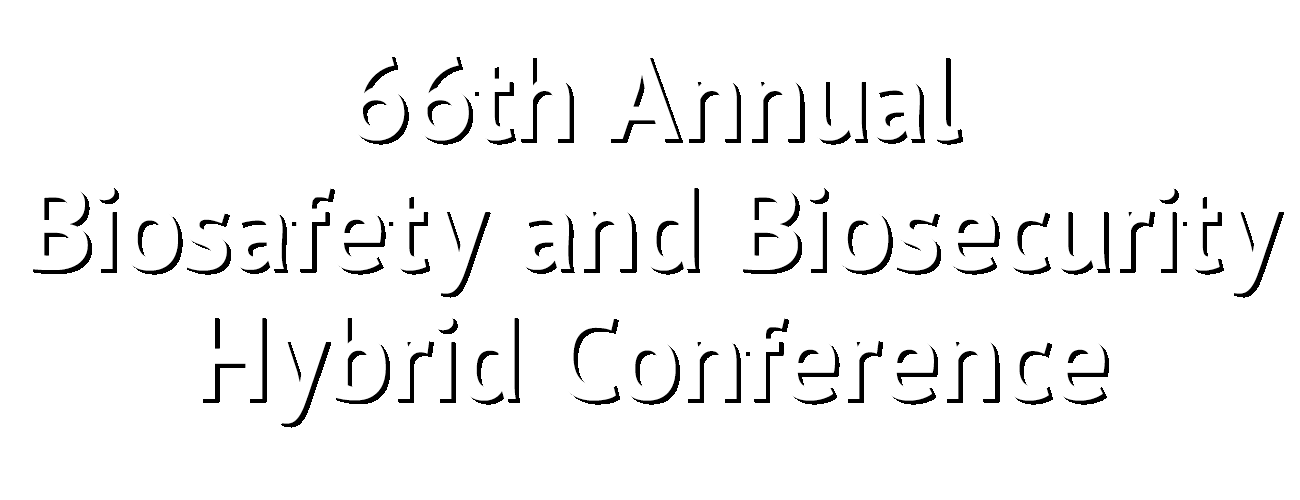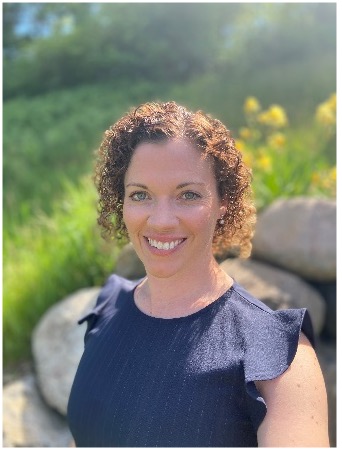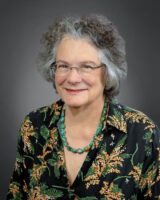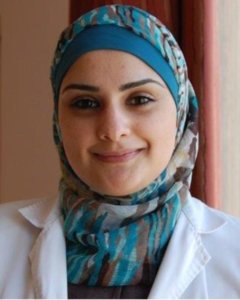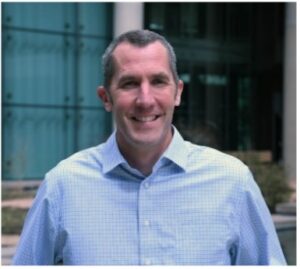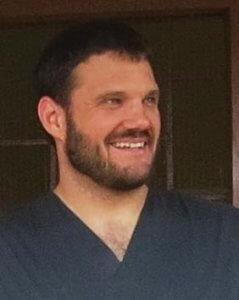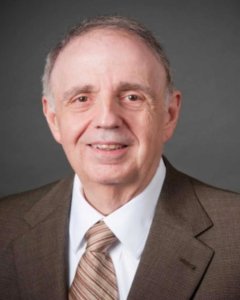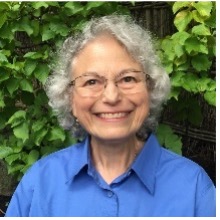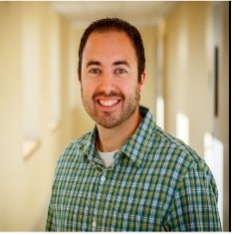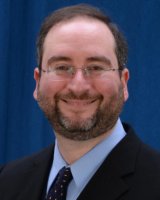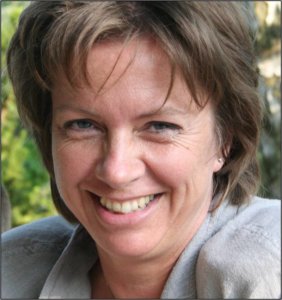Professional Development Courses
All times listed are in CENTRAL TIME ZONE
Basic Level Courses
For those new to the profession or would like training in a particular topic.
In-Person Courses
October 13-15, 2023
CHI Health Center, Omaha, Nebraska
Friday, October 13, 2023, 8:00 AM – 5:00 PM, Room 205
1. BSL-3 Operations and Management
This course will review the important aspects of BSL-3 Operations and Management from two points of view; “hardware” (i.e., facilities & equipment issues) and “software” (i.e., administrative controls). It will cover various aspects you need to consider in order to operate a BSL-3 facility, such as training, maintenance support, occupational health, waste management, maintenance, performance verification, and emergency response. The instructors will encourage interaction and the exchange of experiences among the participants. Regulatory aspects from any specific country, or planning, design, or construction-related issues will not be covered.
Objectives:
- Describe the elements of BSL-3 Operations and Management (risk management, primary barriers, annual performance verification, emergency response, etc)
- Recognize institutional, management, and user responsibilities
- Summarize approaches to developing manuals, SOPs, and training
Suggested Background: Basic Risk Assessment and familiarity with BSL-3 Concepts
Target Audience: Safety Professionals, BSL-3 Managers, Containment Engineers, Lab and Scientific Directors
PDC Level: Basic
COURSE FACULTY
CONTACT HOURS
This course has been approved for 1.0 CM points toward RBP/CBSP recertification. ABSA International is approved as a provider of continuing education programs in the clinical laboratory sciences by the ASCLS P.A.C.E.® Program. This course is approved for 7.5 P.A.C.E.® contact hours.
Friday, October 13, 2023, 8:00 AM – 5:00 PM, Room 207
2. IATA Infectious Substance Shipping Certification
This course is appropriate for those who have some experience with infectious substance handling or shipping but may not have been certified within the past 3 years and those with little to no previous training. The course utilizes several facilitated learning activities. There will be group discussions and interactive exercises focused on the essential areas of infectious substance shipping. New IATA requirements for competency assessment will be administered short interactive assignments, and an online exam. Participants will mark, label, package, and complete documentation for infectious substance shipments (Category A, Category B, and Exempt Patient Specimens), and review applicable regulations with a focus on IATA. Additional US DOT differences will also be addressed. This course is appropriate for those responsible for packaging, marking, and labeling shipments of all categories of infectious substances, dry ice, and liquid nitrogen. Participants have both an online exam (score at least 80%) and practical exercises to complete to demonstrate competency. Successful completion of the course will qualify participants for IATA/DOT certification.
Objectives:
- Review and restate shipping regulations for both air and ground with a particular focus on 49 CFR US DOT and IATA air regulations
- Conduct a risk assessment and be able to properly classify and identify infectious substances for transport purposes
- Package, mark, label, and prepare documentation for shipments of infectious substances to meet regulatory requirements for air and ground shipments
Suggested Background: None
Target Audience: All Safety Professionals, New Biosafety Professionals
PDC Level: Basic
COURSE FACULTY
CONTACT HOURS
This course has been approved for 1.0 CM points toward RBP/CBSP recertification. ABSA International is approved as a provider of continuing education programs in the clinical laboratory sciences by the ASCLS P.A.C.E.® Program. This course is approved for 7.5 P.A.C.E.® contact hours.
Friday, October 13, 2023, 8:00 AM – 5:00 PM, Room 206
3. Animal Research for Biosafety Professionals – An Introduction
Animal Research has contributed to major scientific advances in biomedical, veterinary, and environmental sciences and in public health. However, these efforts often pose significant risks to the health and safety of research and facility staff due to the wide range of species, complex experimental procedures and equipment, and facility hazards that are involved. Balancing optimal worker safety and animal welfare with research objectives yields the best results but requires a solid understanding of how animal programs are managed and an ability to identify and mitigate inherent risks. This course provides a thorough introduction to routine hazards commonly encountered in animal programs that utilize rodents, small animals, nonhuman primates, aquatics, and agricultural species, with a primary focus on identifying and managing biological, chemical, radiological, and physical hazards. The instructors are experienced laboratory animal veterinarians who are actively involved in the management, oversight, and evaluation of animal care and use programs. Topics include assessment and management of animal program hazards; regulations, guidelines, and quality standards that primarily apply to animal research in the U.S.; duties and responsibilities of key program personnel; local oversight systems; best practices that enhance the quality of animal care; and strategies for biosafety professionals to develop and maintain effective partnerships with program staff and institutional animal care and use committee members. Opportunities will be provided to apply new knowledge and skills through group interactive activities and problem-solving sessions.
Objectives:
- Review basic hazard identification and risk assessment techniques relevant to research involving live animals
- Develop an understanding of governing regulations and guidelines that pertain to the care and use of research animals
- Recognize the difference between “regulatory requirements” and “best practices” related to performance-based standards
- Identify successful strategies for working effectively with animal program personnel on common research safety issues
Suggested Background: None
Target Audience: New Biosafety Professionals, All Safety Professionals, Laboratory Workers, New IACUC and Safety Committee Members
PDC Level: Basic
COURSE FACULTY
CONTACT HOURS
This course has been approved for 1.0 CM points toward RBP/CBSP recertification. ABSA International is approved as a provider of continuing education programs in the clinical laboratory sciences by the ASCLS P.A.C.E.® Program. This course is approved for 7.5 P.A.C.E.® contact hours.
Sunday, October 15, 2023, 8:00 AM – 5:00 PM, Room 208
12. Introduction to the ISO35001: Biorisk Management for Laboratories and Other Related Organizations
As there is a demand for stringent and robust system for handling risks of biological materials internationally; ISO 35001 has been published as the first international standard that defines the requirements of the biorisk management system for laboratories or any other organization that works with biological agents. ISO 35001 complements existing international standards for laboratories, and is appropriate to the nature and scale of any laboratory or organization that works with, stores, transports, and/or disposes of hazardous biological materials. The commitment to follow the ISO35001 will enable institutions to effectively identify, assess, control, and monitor the laboratory biosafety and biosecurity risks associated with hazardous biological materials, using the concept of continual improvement through the PDCA (Plan-Do-Check-Act) principle. Institutions can use the standard as a framework for improving overall biorisk program performance, raising awareness, improving international collaboration and communication, fulfilling legal requirements and supporting lab certification.The course will start with an introduction to the ISO35001, brief introduction to the major sections including leadership, planning, support, operation, performance evaluation and improvement, followed by a discussion about how to initiate implementation to improve biorisk management system. Through facilitated discussions and activities, participants will leave the course with a plan of action to perform a gap analysis of their current management system with the new ISO standard and begin a stepwise implementation process to improve existing systems and qualify for eventual ISO35001 certification.
Objectives:
- Distinguish the ISO35001 as an international standard for laboratory biorisk management requirements
- Recognize the main sections of the ISO35001
- Explain how to initiate the use of the ISO35001 to improve the overall laboratory biorisk management system
- Plan a stepwise process to analyze and improve existing biorisk management systems to qualify for eventual ISO35001 certification
Suggested Background: Fundamentals of Biosafety
Target Audience: All Safety Professionals, New Biosafety Professionals, International Biosafety Professionals
PDC Level: Basic
COURSE FACULTY
CONTACT HOURS
This course has been approved for 1.0 CM points toward RBP/CBSP recertification. ABSA International is approved as a provider of continuing education programs in the clinical laboratory sciences by the ASCLS P.A.C.E.® Program. This course is approved for 7.5 P.A.C.E.® contact hours.
Sunday, October 15, 2023, 8:00 AM – 12:00 PM, Room 209
16. Capturing and Displaying the Value of Your Biosafety Program
A recurrent challenge confronting biosafety professionals is the ability to garner necessary program resources to achieve desired goals and objectives. The basis for this difficulty is that, on a good day in the world of biosafety, “nothing bad happens”. The underlying challenge is that upper management may not fully appreciate or understand all of the effort and resources that went into making “nothing bad happen”. Biosafety professionals in particular experience difficulty in this regard because many in the profession have received intensive training in the biological sciences, but little or no training in the area of program management. This course focuses on some key management approaches and techniques that can be used within biosafety programs to help improve stakeholder understanding, which in turn can result in the provision of necessary programmatic resources. Numerous real-world examples of successful applications of the techniques presented will be displayed for review and discussion. Ample time will be provided throughout the course for participant interaction and inquiries.
Objectives:
- Identify various biosafety programmatic measures and metrics that should be captured and communicated
- Describe how biosafety programs can assist with other basic safety program needs to help avoid the notion of program duplication of efforts and to improve safety and client satisfaction levels
- Paraphrase techniques used for displaying biosafety data in ways that others can readily understand and appreciate
Suggested Background: None
Target Audience: All Biosafety Professionals, All Safety Professionals
PDC Level: Basic
COURSE FACULTY
CONTACT HOURS
This course has been approved for 0.5 CM points toward RBP/CBSP recertification. ABSA International is approved as a provider of continuing education programs in the clinical laboratory sciences by the ASCLS P.A.C.E.® Program. This course is approved for 3.5 P.A.C.E.® contact hours.
Sunday, October 15, 2023, 1:00 PM – 5:00 PM, Room 209
18. Writing Effective Standard Operating Procedures
This course will offer participants an understanding of key principles for writing effective standard operating procedures (SOPs). An introduction to the importance of SOPs in achieving desirable and consistent outcomes and issues that must be considered in the SOP writing process will be presented. Examples will include some of the most common human behavior considerations such as compliance, behavioral evolution, complaisance, and strategies to address behavioral concerns that may arise. Participants will engage in guided discussions about the benefits of an effective SOP writing process and the most common mistakes made by the authors of SOPs. The course will take participants through the process of writing feasible standard operating procedures (SOPs) including SOP evaluation and validation. Through group interactions, participants will develop examples of SOPs to illustrate effective writing concepts, present their SOPs to the class, and evaluate each other’s SOPs for feasibility. Instructors will guide participants through the process by providing critical feedback on the SOP writing process as they progress. The goal of this course is to increase students’ awareness of issues that arise when writing standard operating procedures and how these issues affect SOP compliance. Furthermore, the course will provide examples of well-written SOPs that contribute to overall SOP compliance at an institution. The course is intended for those who want to be able to lead or aid in the creation of feasible and effective SOPs in order to enhance both biosafety and biosecurity at their institution.
Objectives:
- Summarize the range of issues that must be considered when writing effective standard operating procedures (SOPs), including human behavior
- Develop strategies for writing effective SOPs
- Illustrate how good standard operating procedures (SOPs) work to enhance both biosafety and biosecurity
- Recognize the value of “feasible” and therefore effective standard operating procedure (SOP) in promoting biosafety and biosecurity best practices
Suggested Background: None
Target Audience: All Safety Professionals, New Biosafety Professionals, Laboratory Workers
PDC Level: Basic
COURSE FACULTY
CONTACT HOURS
This course has been approved for 0.5 CM points toward RBP/CBSP recertification. ABSA International is approved as a provider of continuing education programs in the clinical laboratory sciences by the ASCLS P.A.C.E.® Program. This course is approved for 3.5 P.A.C.E.® contact hours.
Sunday, October 15, 2023, 1:00 PM – 5:00 PM, Room 213
19. Using the Past to Prevent Future Laboratory-Acquired Infections
Preventing laboratory-acquired infections (LAIs) is a challenge for laboratory managers and biosafety professionals, especially when dealing with an emerging pathogen. It is extremely important to quickly determine if there has been an exposure, what steps need to happen next, including any prophylaxis, root cause analysis, gaps in the biosafety plan, and additional mitigation measures that need to be implemented. This interactive course will demonstrate how real-life scenarios from the ABSA LAI Database can be used as a learning and training tool to help prevent future incidents and LAIs. This course will provide an overview of how to search the LAI database and a review of two published case studies. Participants will be shown how to use an exposure assessment tool and clinical laboratory biological exposure monitoring guide (both provided) to demonstrate that the database scenarios had resulted in an exposure. Participants will be shown how to perform a root cause analysis, apply this information to find the biosafety plan gaps, and determine what additional steps are needed to mitigate the risks. In a group discussion, participants will receive new scenarios from the database; utilize the exposure assessment tool to complete the process that was illustrated from exposure determination to performing the root cause analysis, identifying the gaps, and mitigation steps to help prevent this from happening again. Additionaly, participants will learn how to use published LAI data and these tools to determine how to safely work with an emerging pathogen.
Objectives:
- Describe how the ABSA LAI database can be used for biosafety training and determining how to safely work with emerging pathogens
- Utilize an exposure assessment tool to assess real-life laboratory incidents for potential exposures and to help guide prophylaxis if indicated
- Analyze actual laboratory incidents to determine the root cause and what steps are necessary to mitigate future incidents
Suggested Background: Fundamentals of Biosafety, Risk Assessment, Micro/Molecular Biology 101, Principles and Practices of Biosafety
Target Audience All Safety Professionals, Laboratory Workers
PDC Level: Intermediate
COURSE FACULTY
CONTACT HOURS
This course has been approved for 0.5 CM points toward RBP/CBSP recertification. ABSA International is approved as a provider of continuing education programs in the clinical laboratory sciences by the ASCLS P.A.C.E.® Program. This course is approved for 3.5 P.A.C.E.® contact hours.
Basic Virtual Courses
August 29 – November 13
(Although these courses are a part of the 66th Annual Biosafety and Biosecurity Hybrid Conference it is not necessary to attend the conference to register for these webinars.)
Tuesday, August 29, 2023 from 11:30 AM – 4:00 PM CDT
1V. Introduction to Biosafety in the Clinical Setting
The clinical setting poses a different environment than research laboratories. This course provides foundations for applying biosafety concepts in the clinical setting. Topics covered include common issues and lessons learned pertaining to clinical facilities including pharmacies, laboratories, clinics, infusion areas, ORs, and waste disposal facilities; PPE, disinfection, risk assessments, and safety practices in the clinical setting; speaking biosafety to doctors, nursing staff, pharmacy staff, infection prevention and control, diagnostic microbiology lab personnel, and hospital EHS staff; applying NIH Guidelines and the BMBL to the clinical setting; gaps in oversight of research safety for clinical trials, and risk assessments for unconventional or highly specialized delivery mechanisms for biologics. The course will conclude with a focus on clinical trials including the role of an IRB and how it can overlap with an IBC; the process for investigational products to obtain FDA approval to be deemed as safe and effective therapeutics; and the evolving regulatory environment in the U.S. for biologics such as vaccines, regenerative medicines, and gene therapy. The course is designed to be highly interactive with discussions, surveys, and team exercises.
Objectives:
- Apply biosafety principles in the clinical setting
- Perform risk assessments and identify gaps in occupational safety in the clinical setting
- Discuss the regulatory oversight structure for clinical trials and the developmental process for investigational products
Suggested Background: None
Target Audience: All Safety Professionals, Laboratory Workers, New Biosafety Professionals, Research Administrators, Clinical Professionals
Audience Level: Basic
Course Length: 4 hours (one 4-hour live session with a 30-minute break)
Within 10 business days of purchasing the recording, you will be added to the course on the ABSA International Training Site. If you have already taken ABSA courses, then you will receive an enrollment notification. If you are a new user, you will receive an invitation to create your account on the ABSA International Training Site. Once the account is created, you will see the course on your course dashboard. You will have 60 days to complete the course.
CONTACT HOURS
This course has been approved for 0.5 CM points toward RBP/CBSP recertification. ABSA International is approved as a provider of continuing education programs in the clinical laboratory sciences by the ASCLS P.A.C.E.® Program. This course is approved for 4.0 P.A.C.E.® contact hours.
Registration for this course is now closed. The recording of this webinar is available for purchase until November 29, 2023.
COURSE FACULTY
COURSE FEES
ABSA Members: $440 USD
Nonmembers: $540 USD
To obtain the ABSA member rate, the participant will need to be an ABSA member in the year in which the training is offered. Course fees include: course handouts, access to the ABSA International training site, and 4-hours of interactive instruction from a well-respected subject matter expert.
Wednesday, September 6 and Friday, September 8, 2023, 12:30 PM – 2:45 PM CDT
2V. Introduction to the Science and Biosafety of Cell and Gene Therapy Clinical Trials
The use of recombinant and synthetic nucleic acid molecules in clinical trials is growing at an explosive pace. This course is intended to introduce biosafety professionals to the science and biosafety of gene-based investigational products in clinical trials including gene-based vaccines, gene modified cellular products, gene therapy and gene editing. This course will provide an overview of molecular biology, virology and viral vectors. Participants will discuss risk assessments and best practices for dealing with risks associated with diverse types of biological hazards.
Objectives:
- Restate the basic molecular biology and microbiological principles behind gene-based vaccines, gene modified cellular therapies and gene therapies
- Summarize how to conduct a risk assessment for gene-based vaccines, gene modified cellular therapies and gene therapies
- Overview of viral vectorology (properties, uses, and risks associated with commonly utilized viral vectors)
Suggested Background: None
Target Audience: All Safety Professionals, Laboratory Workers, Research Administrators, Clinical Professionals
Audience Level: Basic
Course Length: 4 hours (two 2-hour live sessions with a 15-minute break each session)
Within 10 business days of purchasing the recording, you will be added to the course on the ABSA International Training Site. If you have already taken ABSA courses, then you will receive an enrollment notification. If you are a new user, you will receive an invitation to create your account on the ABSA International Training Site. Once the account is created, you will see the course on your course dashboard. You will have 60 days to complete the course.
CONTACT HOURS
This course has been approved for 0.5 CM points toward RBP/CBSP recertification. ABSA International is approved as a provider of continuing education programs in the clinical laboratory sciences by the ASCLS P.A.C.E.® Program. This course is approved for 4.0 P.A.C.E.® contact hours.
Registration for this course is now closed. The recording of this webinar is available for purchase until December 6, 2023.
COURSE FACULTY
COURSE FEES
ABSA Members: $440 USD
Nonmembers: $540 USD
To obtain the ABSA member rate, the participant will need to be an ABSA member in the year in which the training is offered. Course fees include: course handouts, access to the ABSA International training site, and 4-hours of interactive instruction from a well-respected subject matter expert.
Thursday, September 28, 2023, 11:30 AM – 4:00 PM CDT
4V. IBC and IRE Basics
IBC Basics is an introductory course on the function and administration of Institutional Biosafety Committees (IBCs) delivered by expert staff from the National Institutes of Health (NIH) Office of Science Policy (OSP). IBC Basics will promote the professional development of those associated with IBCs by providing an opportunity to learn about the role of NIH OSP, the content of the NIH Guidelines for Research Involving Recombinant and Synthetic Nucleic Acid Molecules, and understand the range of biosafety oversight responsibilities that IBCs have under the NIH Guidelines. This course provides an overview and may be helpful for those new to the field or for those who are also interested in the Institutional Biosafety and Biosecurity Oversight Governance workshop.
Objectives:
- Summarize the content of the NIH Guidelines for Research Involving Recombinant and Synthetic Nucleic Acid Molecules and the USG Institutional Policy for the Oversight of Dual Use Research of Concern (DURC)
- Restate the requirements for IBCs under the NIH Guidelines and IRES under the DURC Policy
- Describe the partnership between NIH OSP and IBCs in the oversight of research subject to the NIH Guidelines
Suggested Background: None
Target Audience: New Biosafety Professionals, IBC Members, Compliance Staff
Audience Level: Basic
Course Length: 4 hours (one 4-hour live session with a 30-minute break)
Within 10 business days of purchasing the recording, you will be added to the course on the ABSA International Training Site. If you have already taken ABSA courses, then you will receive an enrollment notification. If you are a new user, you will receive an invitation to create your account on the ABSA International Training Site. Once the account is created, you will see the course on your course dashboard. You will have 60 days to complete the course.
CONTACT HOURS
This course has been approved for 0.5 CM points toward RBP/CBSP recertification. ABSA International is approved as a provider of continuing education programs in the clinical laboratory sciences by the ASCLS P.A.C.E.® Program. This course is approved for 4.0 P.A.C.E.® contact hours.
Registration for this course is now closed. The recording of this webinar is available for purchase until December 28, 2023.
COURSE FACULTY
COURSE FEES
ABSA Members: $440 USD
Nonmembers: $540 USD
To obtain the ABSA member rate, the participant will need to be an ABSA member in the year in which the training is offered. Course fees include: course handouts, access to the ABSA International training site, and 4-hours of interactive instruction from a well-respected subject matter expert.
Friday, October 27, 2023, 11:00 AM – 3:30 PM CDT
6V. Selection and Use of Personal Protective Equipment (PPE)
Recent infectious disease outbreaks highlighted the need for the proper use of Personal Protective Equipment (PPE). The guidance on use of appropriate PPE varies greatly and can often be contradicting and therefore confusing to the end user. Furthermore, availability of different PPE often varies depending on the situation and location. Selection of appropriate PPE should be based on a comprehensive risk assessment that takes in consideration the different hazards present, as well as the procedures/activities to be conducted. Often times, locations where PPE is needed vary as well, from a well-controlled laboratory environment to collection room or a field location, and even in a patient room setting. Each of these situations require staff to be able to perform a comprehensive risk assessment, often in a fast-evolving situation and with a minimal understanding of specifications associated with different PPE components available to them. This course will provide overview of different PPE options available; specifications associated with each option, and address a risk assessment process for selection of appropriate PPE for different environments. The examples will include some of the most common issues and considerations when selecting PPE such as supply chain issues as well as strategies to address behavioral concerns that may arise. In groups, participants will develop risk assessment for different scenarios, present their risk assessment to the class, and evaluate each other’s PPE selection based on their risk assessment. Instructors will guide participants through the process by providing critical feedback on the PPE features and selection process as they progress. The course will go through an effective risk assessment process which is critical for proper selection of appropriate PPE. The course is intended for those who want to be able to lead or aid in the selection of appropriate PPE in order to enhance both biosafety and biosecurity at their institution.
Objectives:
- Summarize the range of issues that must be considered when selecting appropriate PPE, including human behavior
- Develop strategies for selecting appropriate PPE based on a comprehensive risk assessment process
- Recognize the value of selection and use of appropriate PPE in promoting behavioral compliance, biosafety and biosecurity best practices
Suggested Background: None
Target Audience: All Safety Professionals, Animal Caretakers, Laboratory Workers
Audience Level: Basic
Course Length: 4 hours (one 4-hour live session with a 30-minute break)
Within 10 business days of purchasing the recording, you will be added to the course on the ABSA International Training Site. If you have already taken ABSA courses, then you will receive an enrollment notification. If you are a new user, you will receive an invitation to create your account on the ABSA International Training Site. Once the account is created, you will see the course on your course dashboard. You will have 60 days to complete the course.
CONTACT HOURS
This course has been approved for 0.5 CM points toward RBP/CBSP recertification. ABSA International is approved as a provider of continuing education programs in the clinical laboratory sciences by the ASCLS P.A.C.E.® Program. This course is approved for 4.0 P.A.C.E.® contact hours.
Registration for this course is now closed. The recording of this webinar is available for purchase until January 27, 2024.
COURSE FACULTY
COURSE FEES
ABSA Members: $440 USD
Nonmembers: $540 USD
To obtain the ABSA member rate, the participant will need to be an ABSA member in the year in which the training is offered. Course fees include: course handouts, access to the ABSA International training site, and 4-hours of interactive instruction from a well-respected subject matter experts.



